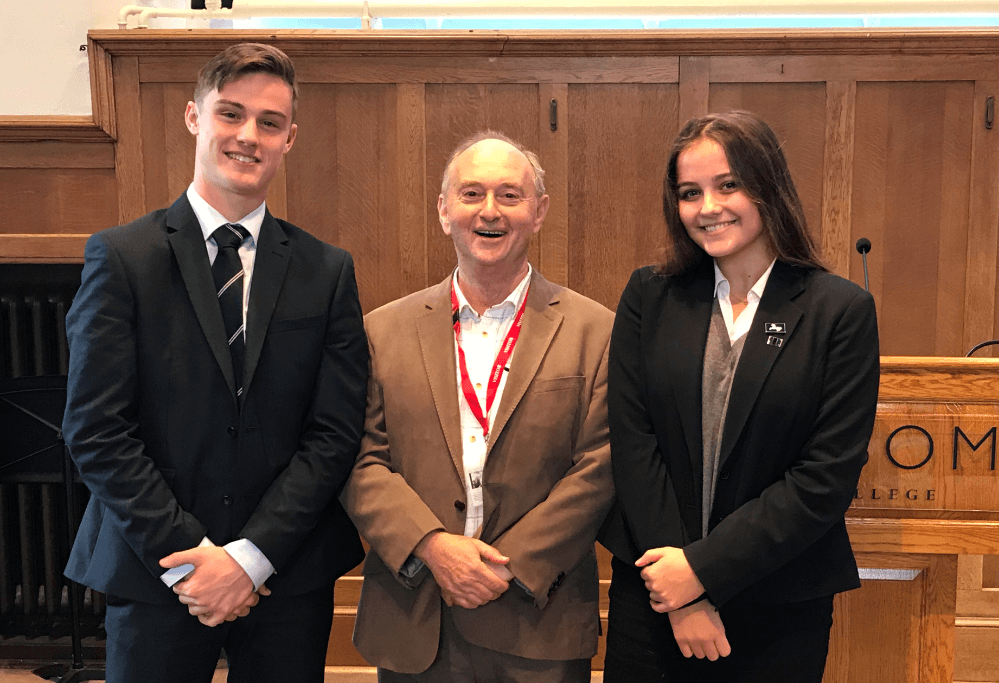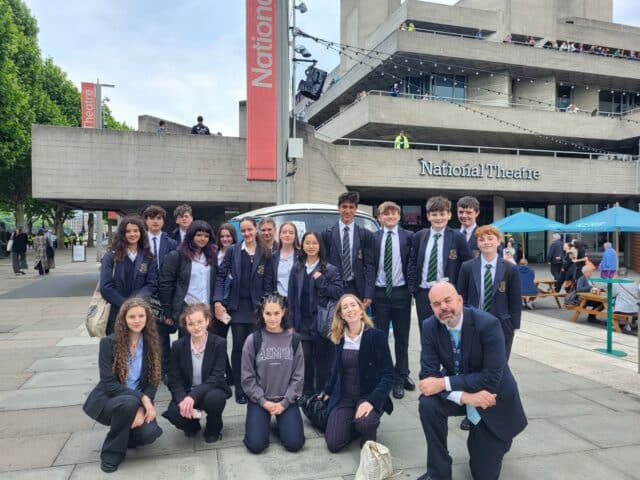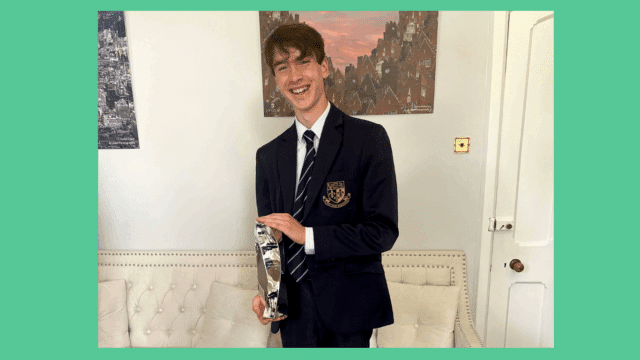The inaugural Humanities Week was a runaway success, with activities across Classics, Religious Studies, Geography, History and English, all on the theme of War and Conflict.
Highlights included a scintillating debate on conflict in the classical world; a Question Time event on the experience of current and former members of the armed forces, among other serving Royal Navy personnel; an insightful roundtable discussion with a Deputy Ambassador; and a talk from a Holocaust survivor for members of the Sixth Form.
These events were followed on Friday with workshops on conflict poetry, which saw the entire Upper Fourth Form contemplating how humans try to capture the indescribable experiences of war using the written and spoken word.
Additionally, the Lower School were included via the Tutor Times, and Restrepo was screened in the senior school cultural hour with Schindler’s List on the big screen.
Below, Ms Marisa Bosa, Head of Geography, and Mr James Dunn, Head of History, Government and Politics, speak about their respective events in their own words:
“In Geography we invited Alan Attryde, former deputy Ambassador of Britain, to speak to the students about conflict Geography.
Mr Attryde has worked all over the world in many areas of conflict; for example he was in Shanghai during Tiananmen Square, Caracas when Chavez was coming into power, Baghdad during the Iraq war and Tehran during anti-Imperialism protests. He lead a roundtable conversation about current and past conflicts around the world which allowed students to ask many questions and deliberate over the state of diplomacy worldwide.”
Ms Marisa Bosa
“The Lower Sixth listened in rapt attention to the testimony of Marcel Ladenhiem. A survivor of the Holocaust, Mr Ladenheim was hidden from the Nazis as a young boy before moving to Manchester to live with relatives in 1947.
We are particularly grateful to Mr Ladenheim for giving so generously of his time and prompting us to reflect on the important lessons of the past and how they apply to our present.”
Mr James Dunn





